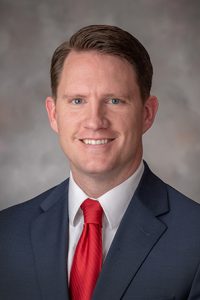Joint hearing for property tax request increases amended, advanced
A bill that would require certain political subdivisions to hold a joint public hearing before increasing their property tax requests advanced to the final round of debate April 28 after lawmakers amended it to account for real property growth.
Under LB644, introduced by Sen. Ben Hansen of Blair, counties, cities, school districts and community colleges could increase their property tax requests only if they first participate in a joint public hearing.
The bill would require counties to notify affected taxpayers of the hearing by postcard, the cost of which would be shared by the political subdivisions seeking to increase their property tax request.
The hearing would be open to public testimony, and its agenda would include only the property tax request proposals.
Hansen introduced an amendment on select file that he said was the result of a compromise with other senators and representatives of the affected political subdivisions.
To accommodate growing communities, he said, the amendment would require those political subdivisions to hold the joint public hearing only if they seek to increase their property tax request by more than an allowable growth percentage, equal to two percent plus the political subdivision’s real growth percentage.
Among other changes, the amendment clarifies that political subdivisions would send only one representative to the hearing, which would be held on or after Sept. 17 and before Sept. 29.
Senators voted 36-0 to adopt Hansen’s amendment.
Omaha Sen. Robert Hilkemann introduced an amendment, adopted 41-0, that would require publication of notice of the hearing in a newspaper of general circulation in the relevant county.
As amended on general file, LB644 also would require a political subdivision’s governing body to make provisions in its next budget to pay a refund of real or personal property taxes.
Under the bill, interest on refunds would accrue at a rate of 9 percent on the unpaid balance beginning 30 days after the entry of the final non-appealable order or other action approving the refund.
Under an amendment introduced by Sen. John Cavanaugh of Omaha, interest instead would accrue beginning 30 days after the date when the county assessor certifies the amount of the refund based upon the order.
After adopting the Cavanaugh amendment 40-0, lawmakers advanced LB644 to final reading by voice vote.

